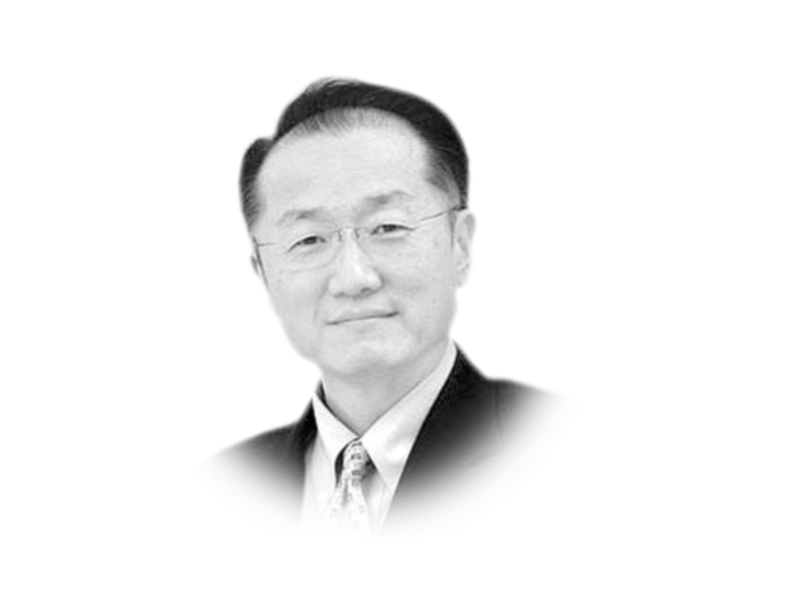
Last year, when I travelled with President Evo Morales to a Bolivian village 14,000 feet above sea level, villagers snapped pictures on their smartphones of our arrival. In Uttar Pradesh, the state in India with the highest number of poor people, I found Indians watching Korean soap operas on their smartphones.
We live in an unequal world. But while the rich world may be blind to the suffering of the poor, the poor throughout the world are very much aware of how the rich live. And they have shown they are willing to take action.
Inequalities hurt everyone. Women’s low economic participation creates income losses of 27 per cent in the Middle East and North Africa. Inclusive growth, in contrast, builds a stronger, more robust social contract between people and their government –– and builds stronger economies. If we raised women’s employment to the levels of men, for instance, average income would rise by 19 per cent in South Asia and 14 per cent in Latin America.
We know that the fundamental problems of the world today affect not millions, but billions of us. Nearly two billion people lack access to energy. An estimated 2.5 billion people lack access to basic financial services. And all of us face an impending disaster from climate change if we do not act.
The world’s development needs, of course, far outstrip the World Bank Group’s abilities to address them. But we can do much, much more. In order to meet the increased demand that we are expecting as we get better at delivering knowledge and solutions to our clients, we’re strengthening our financial capability to scale up our revenue and stretch our capital.
We’ve recently taken steps to nearly double our annual lending to middle-income countries from $15 billion to as much as $28 billion a year. This means that the World Bank’s lending capacity — or the amount of loans we can carry on our balance sheet –– will increase by $100 billion in the next decade to roughly $300 billion. This is in addition to the largest replenishment in history of IDA, our fund for the poorest countries, with nearly $52 billion in grants and concessional loans.
At the same time, we are also increasing our direct support to the private sector. MIGA, the World Bank Group’s political risk insurance agency, is planning to increase its new guarantees by nearly 50 per cent over the next four years. IFC, our private sector arm, expects it will nearly double its portfolio over the next decade to $90 billion. In 10 years, we believe IFC’s annual new commitments will increase to $26 billion.
Taken as a whole, the World Bank Group’s annual commitment, which today is around $45 to $50 billion, is expected to grow to more than $70 billion in the coming years. This increased financial firepower represents unprecedented growth for the World Bank Group. We are now in a position to mobilise and leverage, in total, hundreds of billions of dollars annually in the years ahead.
We need to find more effective ways to work with key partners and stakeholders, including those in the civil society and the private sector. We need partnerships, strong global institutions, a vibrant private sector and committed political leaders.
Most important of all, we need to unite people around the world in a global movement to end poverty. All parts of our global society must unite to translate the vision of a more just, sustainable economy into the resolute action that will be our legacy to the future.
The world is watching.
Published in The Express Tribune, April 17th, 2014.
Like Opinion & Editorial on Facebook, follow @ETOpEd on Twitter to receive all updates on all our daily pieces.
COMMENTS (6)
Comments are moderated and generally will be posted if they are on-topic and not abusive.
For more information, please see our Comments FAQ













The proposed growth figure to $70 billion is penny-ante expenditure compared to the almost $2 trillion our wise world leaders currently spend on their military budgets annually. Why do I have the feeling that poverty will be with us for ever and in spite of fudged government figures everywhere is growing exponentially? Incidentally, defense spending is just one aspect of how our governments waste money.
Well, the comment by the author... "In Uttar Pradesh, the state in India with the highest number of poor people, I found Indians watching Korean soap operas on their smartphones" seems too unrealistic. We already have hundreds of channels and soap-operas, hardly anyone watches soap-operas on mobile and hardly anyone knows about Korean soap-operas but they do watch hindi movies which are popular. For 15-20 rs. you can download 10-20 movies on memory cards which poor people watch as there's shortage of power in far-flung areas. However, it's a reality that people posses smartphones now from earlier models.
Is this an advertisement for World Bank?